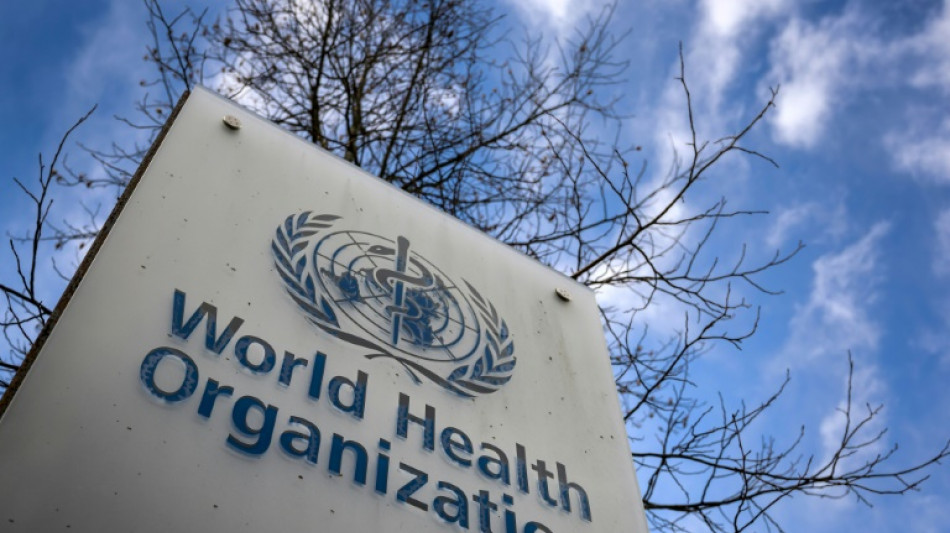
-
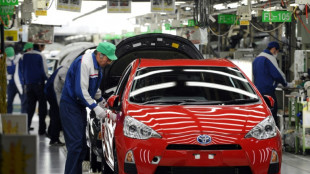 Stocks rise on bank earnings, auto tariff hopes
Stocks rise on bank earnings, auto tariff hopes
-
Trump showdown with courts in spotlight at migrant hearing
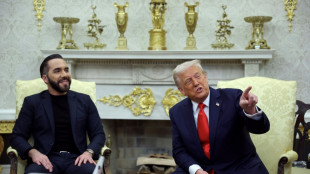
-
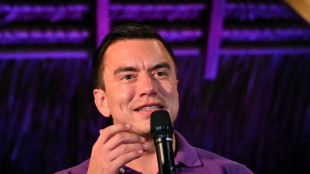 Ecuador electoral council rejects claims of fraud in presidential vote
Ecuador electoral council rejects claims of fraud in presidential vote
-
Russia jails four journalists who covered Navalny
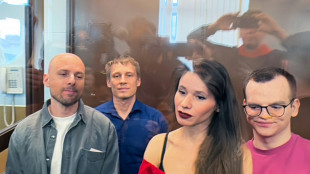
-
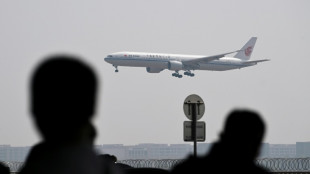 Trump says China 'reneged' on Boeing deal as tensions flare
Trump says China 'reneged' on Boeing deal as tensions flare
-
Trump eyes near 50 percent cut in State Dept budget: US media
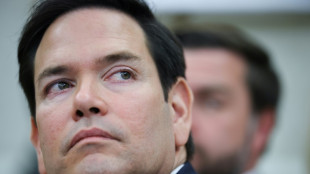
-
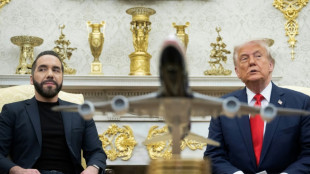 Trump says would 'love' to send US citizens to El Salvador jail
Trump says would 'love' to send US citizens to El Salvador jail
-
'Unprecedented' Europe raids net 200 arrests, drugs haul
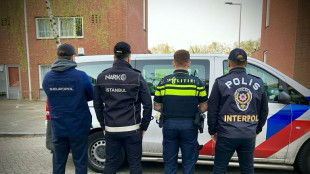
-
 Everyone thinks Real Madrid comeback 'nailed-on': Bellingham
Everyone thinks Real Madrid comeback 'nailed-on': Bellingham
-
NATO's Rutte says US-led Ukraine peace talks 'not easy'
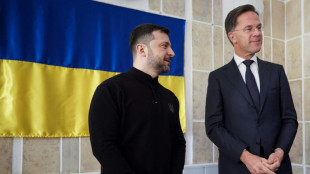
-
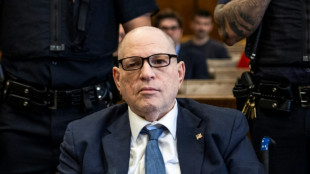 Harvey Weinstein New York retrial for sex crimes begins
Harvey Weinstein New York retrial for sex crimes begins
-
More than 10% of Afghans could lose healthcare by year-end: WHO
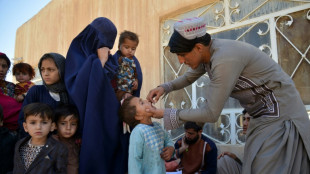
-
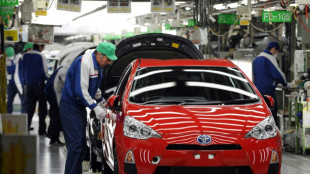 Stocks rise as auto shares surge on tariff break hopes
Stocks rise as auto shares surge on tariff break hopes
-
Facebook chief Zuckerberg testifying again in US antitrust trial

-
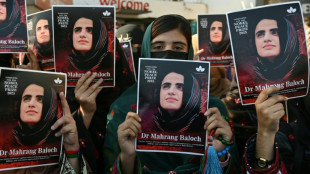 Pakistan court refuses to hear Baloch activist case: lawyers
Pakistan court refuses to hear Baloch activist case: lawyers
-
Inzaghi pushing Inter to end San Siro hoodoo with Bayern and reach Champions League semis
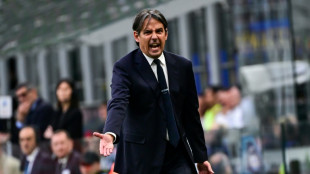
-
 Arsenal's Odegaard can prove point on Real Madrid return
Arsenal's Odegaard can prove point on Real Madrid return
-
China's Xi begins Malaysia visit in shadow of Trump tariffs
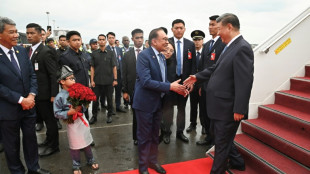
-
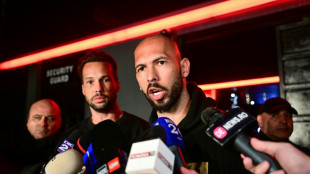 Andrew Tate accusers suing for 'six-figure' sum, UK court hears
Andrew Tate accusers suing for 'six-figure' sum, UK court hears
-
Macron to honour craftspeople who rebuilt Notre Dame

-
 Van der Poel E3 'spitter' facing fine
Van der Poel E3 'spitter' facing fine
-
Khamenei says Iran-US talks going well but may lead nowhere
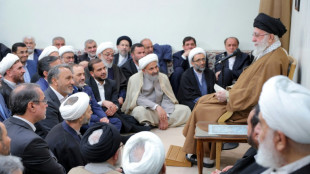
-
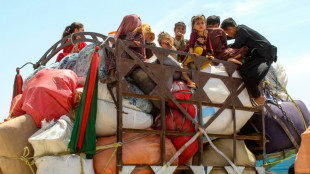 Nearly 60,000 Afghans return from Pakistan in two weeks: IOM
Nearly 60,000 Afghans return from Pakistan in two weeks: IOM
-
Auto shares surge on tariff reprieve hopes
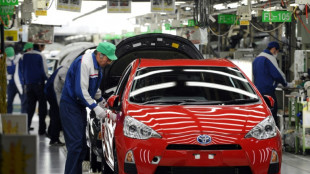
-
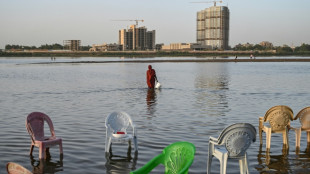 Sudan war drains life from once-thriving island in capital's heart
Sudan war drains life from once-thriving island in capital's heart
-
Trump trade war casts pall in China's southern export heartland

-
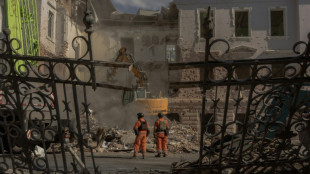 Ukraine's Sumy prepares to bury victims of 'bloody Sunday'
Ukraine's Sumy prepares to bury victims of 'bloody Sunday'
-
Iraq sandstorm closes airports, puts 3,700 people in hospital

-
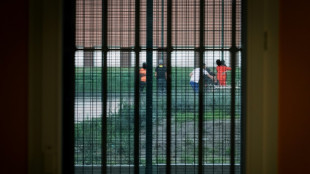 French prisons targeted with arson, gunfire: ministry
French prisons targeted with arson, gunfire: ministry
-
Pandemic treaty talks inch towards deal
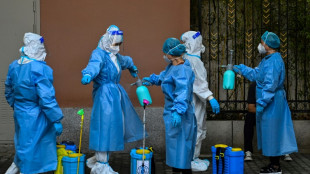
-
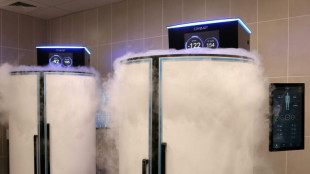 Employee dead, client critical after Paris cryotherapy session goes wrong
Employee dead, client critical after Paris cryotherapy session goes wrong
-
Howe will only return to Newcastle dugout when '100 percent' ready

-
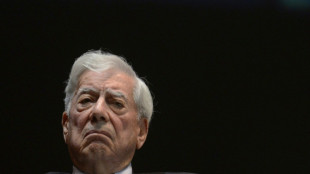 Journalist recalls night Mario Vargas Llosa punched Gabriel Garcia Marquez
Journalist recalls night Mario Vargas Llosa punched Gabriel Garcia Marquez
-
Sudan marks two years of war with no end in sight
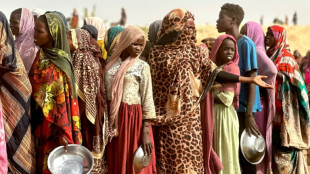
-
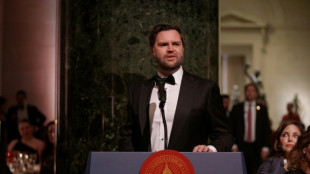 Vance urges Europe not to be US 'vassal'
Vance urges Europe not to be US 'vassal'
-
China tells airlines to suspend Boeing jet deliveries: report
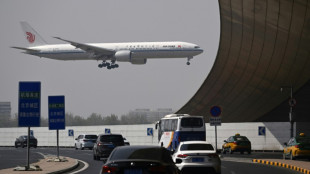
-
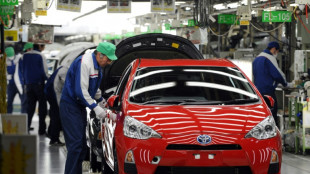 Stocks rise as stability returns, autos surge on exemption hope
Stocks rise as stability returns, autos surge on exemption hope
-
Harvard sees $2.2bn funding freeze after defying Trump
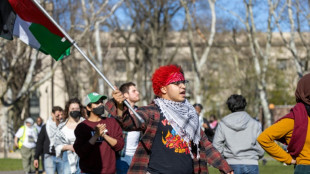
-
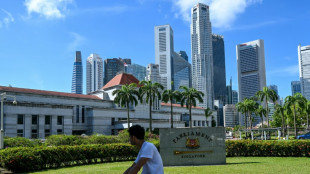 'Tough' Singapore election expected for non-Lee leader
'Tough' Singapore election expected for non-Lee leader
-
Japan orders Google to cease alleged antitrust violation
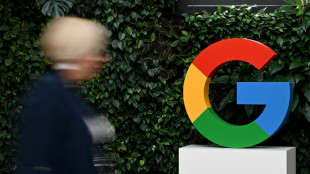
-
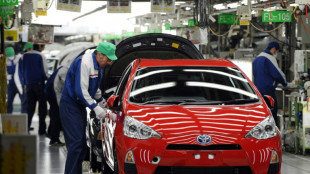 Stocks rise as stability returns, autos lifted by exemption hope
Stocks rise as stability returns, autos lifted by exemption hope
-
Malawi's debt crisis deepens as aid cuts hurt
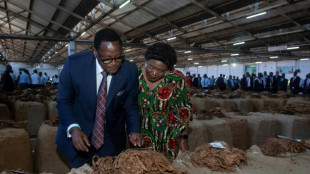
-
 Danish brewer adds AI 'colleagues' to human team
Danish brewer adds AI 'colleagues' to human team
-
USAID cuts rip through African health care systems
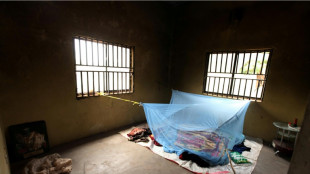
-
 Arsenal target Champions League glory to save season
Arsenal target Champions League glory to save season
-
Kane and Bayern need killer instinct with home final at stake

-
 Mbappe leading Real Madrid comeback charge against Arsenal
Mbappe leading Real Madrid comeback charge against Arsenal
-
S. Korea plans extra $4.9 bn help for chips amid US tariff anxiety
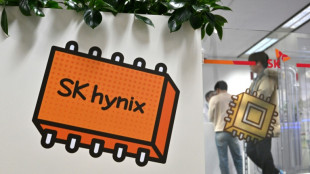
-
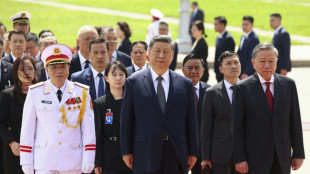 Xi's Vietnam trip aiming to 'screw' US, says Trump
Xi's Vietnam trip aiming to 'screw' US, says Trump
-
Iran's top diplomat to visit Russia after US nuclear talks
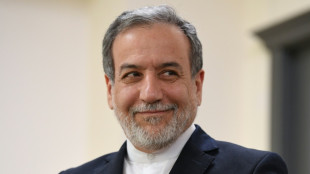

Accord reached 'in principle' over tackling future pandemics: negotiating body
WHO members on Saturday reached agreement over how to tackle future pandemics after three years of discussions, the co-chair of the negotiating body told AFP.
"We have an accord in principle" and the final version will have to be okayed by the various member states, Anne-Claire Amprou, who is also French ambassador for world health, said.
Amprou said delegates would meet on Tuesday in Geneva to put the finishing touches to a landmark text on pandemic prevention, preparedness and response and give it their definitive seal of agreement.
The text will then require the final seal of approval from all World Health Organization members at the World Health Assembly in Geneva at the end of May.
The approval came after a marathon discussion session stretching for almost 24 hours after which delegates broke into enthusiastic applause lasting several minutes.
"This is a very good signal. You are part of an incredible history in the making," said WHO director-general, Tedros Adhanom Ghebreyesus.
"This is a good gift to our children and our grandchildren," said Tedros, who remained ensconced with delegates throughout the night as they thrashed out an agreement.
Several sources told AFP one of the main sticking points as delegates inched their way towards an accord was paragraph 11 of a text extending to some 30 pages on defining technology transfer for production of health products related to pandemics, particularly to benefit developing countries.
Latin American countries are also pushing for facilitation of the transfer.
The issue had been a bone of contention in poorer countries during the Covid-19 pandemic as they saw rich nations hoard vaccine doses and other tests.
Several countries where the pharmaceutical industry is a major economic player oppose the idea of mandatory transfers and have insisted on it being voluntary.
- 'Very constructive and positive' -
According to one delegate, this point has been resolved. But the latest version of the text was as of Saturday morning not available.
For Amprou, "we had to negotiate this week with all the member states in a very constructive and positive manner. There is a real desire to reach an agreement that truly makes a difference and helps prevent, prepare for, and respond to pandemics."
Only experience will tell if the text as proposed can come through the acid test of another pandemic which Tedros has been at regular pains to insist will emerge at some point, we know not when.
The text comes with the traditional multilateral approach for responding to global crises in crisis after US President Donald Trump slashed the international aid programme of what had been by far the world's biggest donor nation.
The United States were absent from the negotiations, after Trump said on his return to the White House that his country will leave the WHO, a move experts say will heighten risks to the global health risk surveillance system.
It was in December 2021, two years after the start of Covid, which killed millions across the globe and brought the world economy to its knees, that WHO members decided a text was of paramount importance.
- 'Lot of upside' -
However, Saturday's text lacks lustre compared with the scale of WHO member states' initial ambitions, James Packard Love, executive director of the Knowledge Ecology international NGO, which has been keenly following the talks, told AFP.
For Love "the initial proposals were put forward by the Secretary were quite ambitious (but) that's not the case now.
"As the negotiations have dragged on, the trade people have come in, the industry, people have come in. And some people ask me, is the agreement so weak now that it's not worth doing? Will it actually change anything that goes through?
"And I tell people that I think there's a lot of upside for getting an agreement."
Michelle Childs, head of policy advocacy at the Drugs for Neglected Diseases Initiative (DNDi), an NGO, told AFP Friday. "The pandemic agreement will not be perfect; it is a product of compromise, and not all ambitions will be met.
"But it will create a crucial new baseline to build on to save lives during the next global health emergency. It is a floor, not a ceiling."
Warning signs of health risks remain, notably H5N1 bird flu, a virus which continues to infect new species, raising fears of eventual transmission between humans.
Another fear is measles outbreaks in 58 countries resulting from insufficient vaccination rates due to mistrust of vaccines caused by misinformation, as well as mpox which is wreaking havoc in Africa.
R.Braegger--VB
